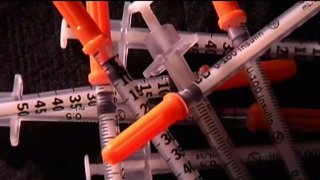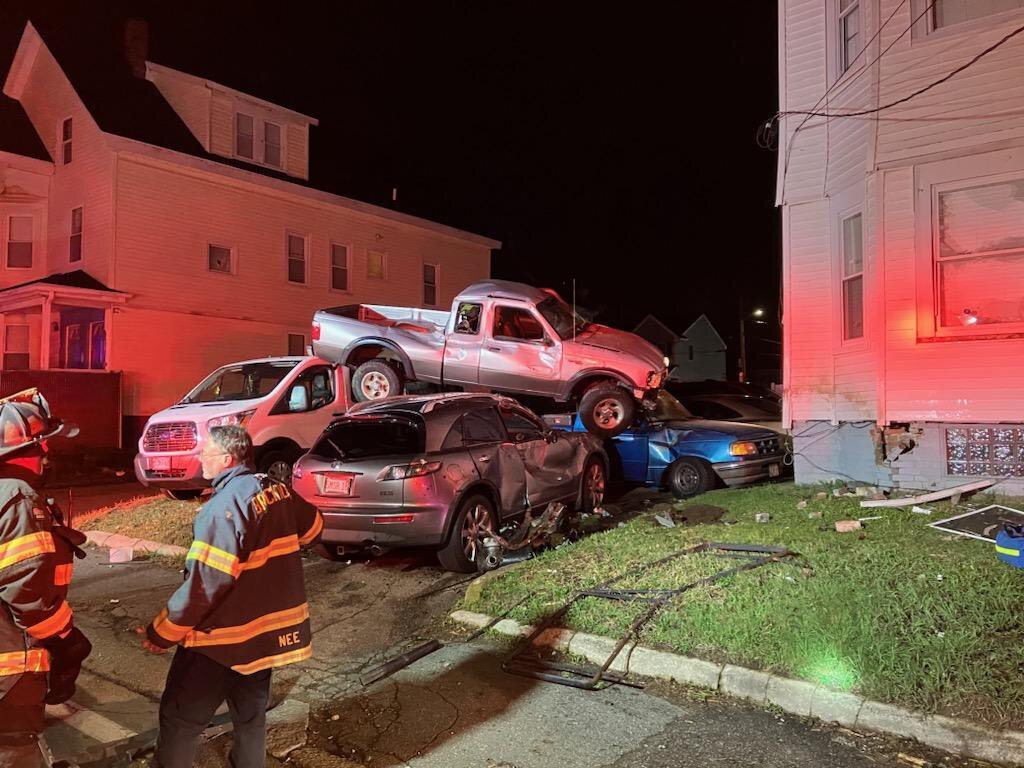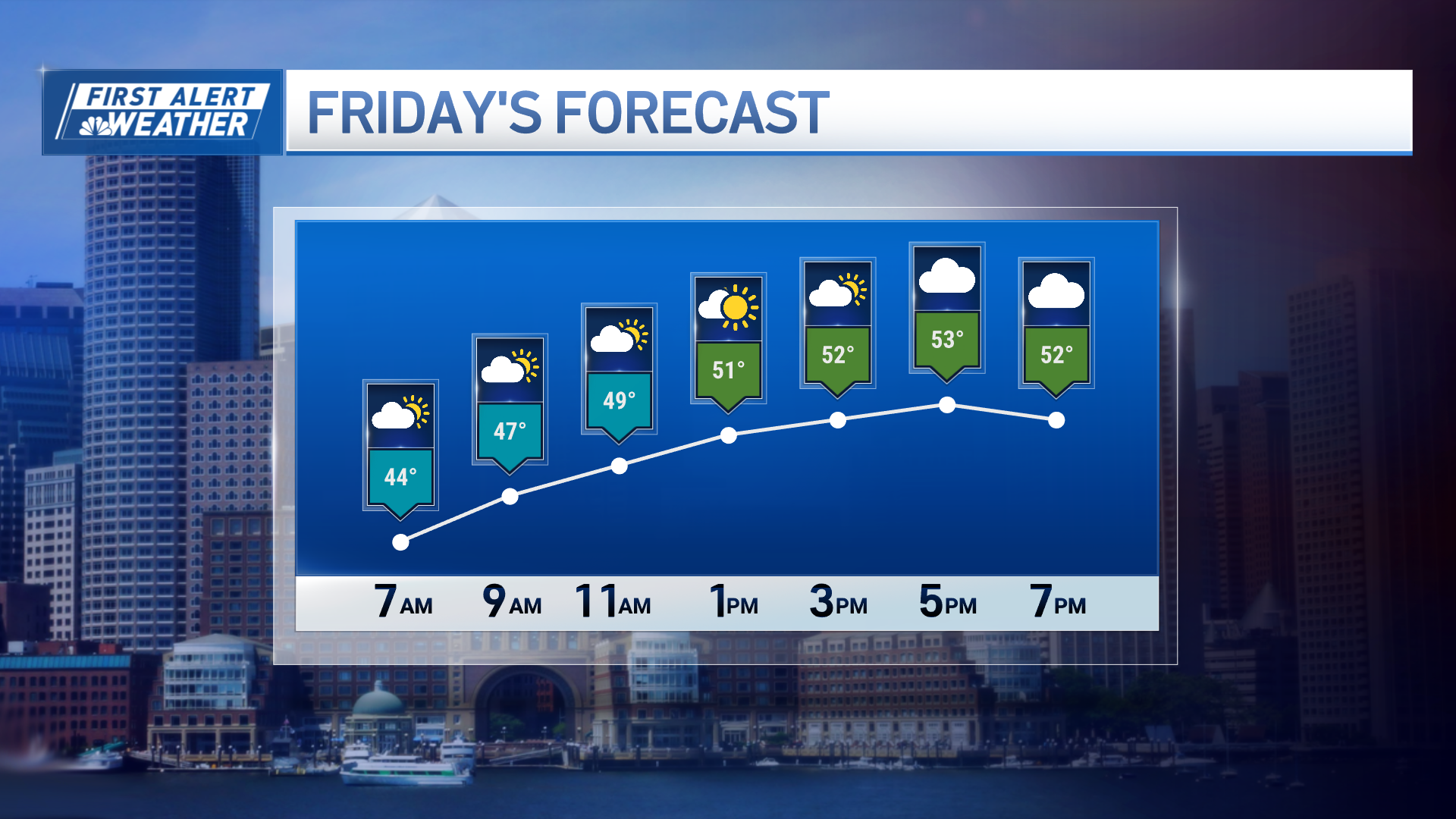
The overdose crisis in Massachusetts is persisting at record high levels, exacerbated by a "poisoned drug supply" that isn't just affecting those who use opioids anymore.
There were 2,323 confirmed and estimated fatal opioid-related overdoses between Oct. 1, 2022 and Sept. 30, 2023 -- about level with last year's record highs, according to data the Department of Public Health published Wednesday.
As overdoses impact people across Massachusetts, the DPH released a report Wednesday that supports so-called overdose prevention centers or supervised injection sites, where individuals can use pre-acquired drugs free of legal consequences under the supervision of medical professionals who could intervene to prevent an overdose from turning fatal.
Such locations have been hotly debated for years and drawn threats of federal prosecution.
Get New England news, weather forecasts and entertainment stories to your inbox. Sign up for NECN newsletters.
DPH Commissioner Robert Goldstein said in a statement that these controversial sites "can be lifelines, serving not only as places of intervention, but as places of empathy, understanding, and healing."
His statement represents a shift for the department. Goldstein said in June that DPH did not understand the feasibility of the sites in Massachusetts and the administration ordered it to a study.
That feasibility study conducted by the department, released Wednesday, found overdose prevention centers are a "life-saving tool that aligns with DPH’s approach to reduce the harms of substance use."
Local
"We are really taking this position that this is a tool in the toolbox for municipalities to use, and we would like to work with them and work with the Legislature to make these feasible," Goldstein said in a media briefing about the overdose report.
Supporters say the facilities would limit the toll of drug use that is already happening, given how quickly fentanyl in particular can make an overdose deadly, and connect users to resources.
Goldstein continued, "They bring drug use off the streets into a supervising setting. They take the drug litter that may accumulate on streets and in parks, and they bring it inside where it can be disposed of appropriately. And so we think of these as a way to improve community relations and improve the ability of those who use drugs to function and operate within the municipality or within the communities where they are."
The powerful synthetic opioid fentanyl is now so prolific in Massachusetts' drug supply that its presence is being detected in the vast majority of fatal opioid overdoses, and it's also being detected in drugs such as cocaine, benzodiazepines and methamphetamine.
Fentanyl is similar to morphine but 50 to 100 times more powerful, according to the National Institute on Drug Abuse, and oftentimes people do not realize it is in the drugs they are using. The synthetic opioid began being recorded as responsible for an increased amount of drug-related deaths about a decade ago.
In the first three months of 2023, fentanyl was present in 93% of all fatal overdoses. Cocaine was present in 60% of opioid-related deaths, followed by alcohol in 29%, benzodiazepines in 24%, prescription opioids in 11%, amphetamines in 10%, heroin in 7% and xylazine in 4%.
"The drug supply is poisoned. Even for those who are using other substances like cocaine, methamphetamine and benzodiazepines, fentanyl is the likely contaminant that is driving overdose deaths," Goldstein said.
Non-fatal opioid-related overdoses have begun to decrease over the past few years, Goldstein said.
The number of non-fatal opioid overdoses among Massachusetts residents increased by 130% from 2013 to 2017 and decreased 18% from 2017 to 2021.
"Although it may be due to changes related to the COVID-19 pandemic and access to medical services, it could certainly be related to the lethality of the drug supply. Once again, our drug supply is poisoned, heavily contaminated with fentanyl," the commissioner said.
The feasibility report that "[recognizes] that the establishment of overdose prevention centers (OPC) in Massachusetts would be an effective intervention to combat preventable overdoses and decrease fatal overdose rates in the state" will head to Gov. Maura Healey's desk for review on Wednesday.
These sites have been operating for more than 30 years across the globe, in places like Canada, Australia and Europe, Goldstein said.
"In particular, in Vancouver, there's a demonstration of a 35% reduction in fatal overdose rates within a 500 meter radius of the facility, and a 9% reduction in the rest of the city in the first few years of operation," he said. "These are an effective evidence-based way to decrease opioid related overdose deaths."
The only two centers operating in the U.S. have been running in New York City for the last two years. There has never been an overdose death reported at a sanctioned overdose prevention center, according to DPH.
The centers in New York are technically illegal -- running afoul of federal statute that outlaws maintaining a property where illicit drugs are consumed. That concern has loomed large in Beacon Hill's previous debates on the issue.
"Despite this federal law that prohibits what happens there, OnPoint in New York City has been able to operate for the past two years absence any federal legal intervention, and they actually received funds from the federal government that have allowed them to do research and also support some of the activities that are happening within the overdose prevention center," Goldstein said.
He added that there isn't much the state can do about the federal liabilities, but that lawmakers and Healey could open doors for these centers by changing state law.
Professional licensure boards, many of which fall under the purview of the Department of Public Health, also prohibit medical professionals from violating state and federal law to operate one of these centers.
The DPH's report highlights some current legislation that would provide state legal protections for consumers, property owners, medical professions and public employees.
It also makes clear that the decision to open an overdose prevention center would fall to a municipality.
Goldstein said these sites work best when there is community support for them.
"We need to recognize that municipalities may be at risk, both at the federal and state level, should they open absent these liability protections," he said. "And so we will say clearly that to be feasible, overdose prevention centers would require at least state-level liability protections."
Some Massachusetts municipalities have been working to stand up overdose prevention sites despite the lack of a regulatory framework or support from legislative leaders. In Somerville, city officials are working to approve funding for a mobile clinic, and some city leaders in Cambridge and Worcester are exploring options, according to WBUR.
Healey has signaled that she is open to municipalities deciding for themselves whether to open authorized drug use sites, a contrast from her predecessor, Gov. Charlie Baker, who repeatedly warned about the threat of federal prosecution.
"Governor Healey is committed to advancing harm reduction strategies to save lives, and this report shows that allowing communities to establish overdose prevention sites can be an effective and safe tool. She will review any legislation that reaches her desk," Healey spokesperson Karissa Hand said.
Goldstein and DPH Bureau of Substance Addiction Services Director Deirdre Calvert said the centers could be part of a multifaceted solution to address overdose deaths.
The department launched a first-in-the-nation overdose hotline this fall, for those using drugs to be on the phone with someone in case emergency services are needed. DPH also funded a harm reduction vending machine pilot in Pittsfield alongside Berkshire Medical Center, to be used by clients for syringes. In the first month of operation in October 2023, 327 products were dispensed to 179 participants, including 141 safer smoking kits, 91 sterile syringes, and 35 snacks, DPH reported.
The department has also sought to distribute naloxone, which can reverse the effects of an opioid overdose, and fentanyl test strips more widely across the state.
The "Healey-Driscoll Administration Opioid Strategy" reports that the state distributed more than 173,500 doses of naloxone at no cost through more than 170 community distribution programs, and 233,000 fentanyl test strips.
The fiscal year 2024 budget invested over $700 million in substance addiction prevention and treatment programs, according to DPH.



